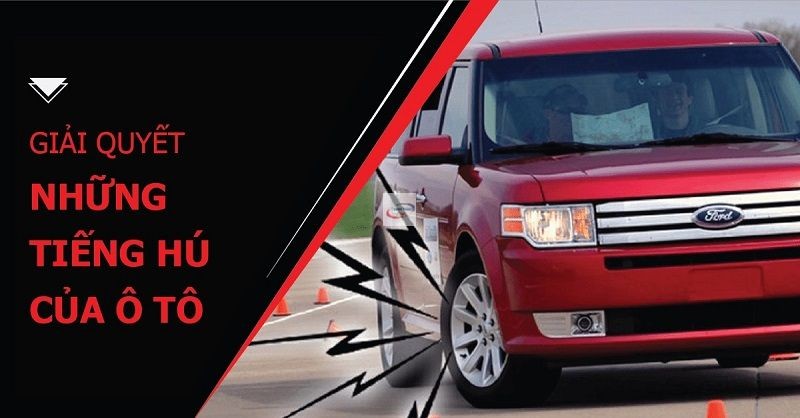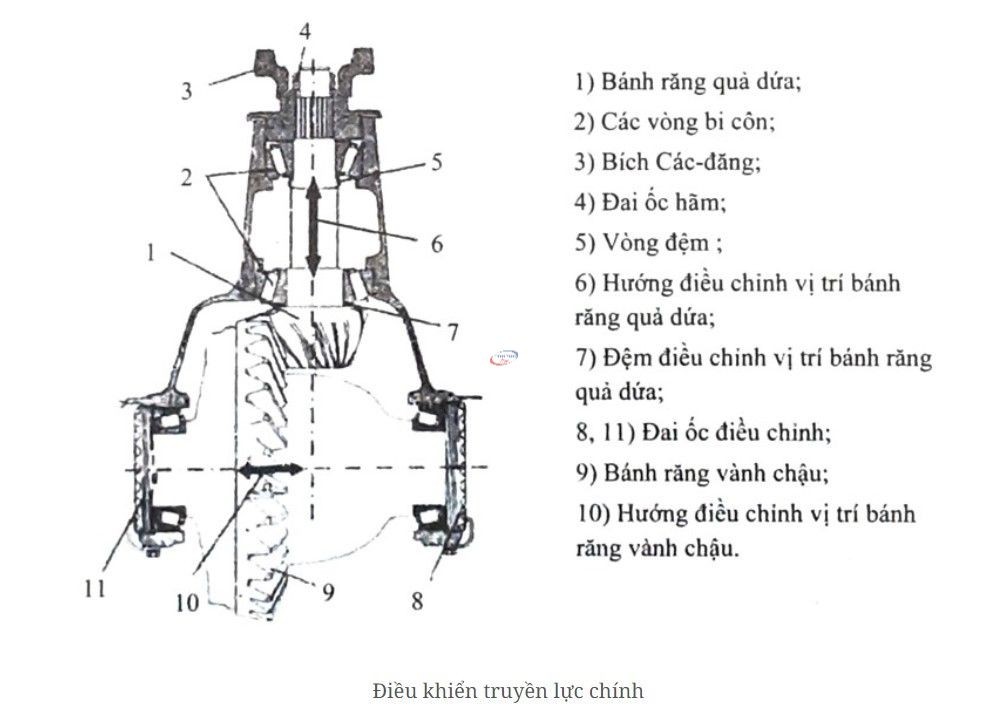Trucks often operate under heavy loads and high intensity, making them prone to various malfunctions. One common issue is a whining noise when accelerating. This unpleasant sound is not only annoying but also potentially unsafe. So, what causes a truck to whine when accelerating, and how can it be fixed? This article will provide you with the necessary information.
 Truck emitting a whining noise while accelerating
Truck emitting a whining noise while accelerating
Causes of Truck Whining Noise During Acceleration
A whining noise when accelerating a truck can stem from various causes, often related to wear and tear, damage, or loose connections in the drivetrain system. Here are some common reasons:
- Bent or loose drive shaft or CV joints (homocentric joints): This component transmits power from the gearbox to the axle. If the shaft is bent or the CV joints are loose, it will create a whining noise when the vehicle is in motion, especially during acceleration.
- Worn CV joints: Prolonged use causes wear on the contact surfaces of the CV joints, leading to friction and noise.
- Damaged or worn gears or bearings in the transmission: Chipped or broken gears, or damaged bearings will produce a distinct whining noise when the truck accelerates.
- Excessive clearance between the drive pinion and ring gear of the main drive gear: If this clearance exceeds the permissible limit, the gears will clash, causing a whining noise.
- Wear and tear of planetary gears and axle shaft gears in the differential: The differential is responsible for distributing torque to the wheels. When the gears inside the differential are worn, they will generate a whining noise, especially when the truck is turning.
How to Identify Truck Whining
To confirm if the truck’s whining is due to the above issues, pay attention to the following signs:
- Vehicle vibration while driving: The faster you accelerate, the more pronounced the vibration and whining noise become.
- Noise changes with terrain: The whining noise is louder when the truck is climbing hills or changing speed suddenly.
- Noise appears when turning: When the truck turns left or right, the whining noise will appear or change in volume.
How to Fix Truck Whining Noise During Acceleration
Fixing the whining noise depends on the underlying cause. Once the cause is identified, appropriate repair or replacement measures are needed.
Inspect and Adjust the Main Drive Gear and Differential
- Check the clearance of the planetary gears: Ensure the clearance is within the permissible range (0.1 – 0.3mm). If the clearance is too wide, replace shims to reduce it.
- Inspect and adjust the bearing preload of the drive pinion: If the bearing is too tight, increase shims to reduce friction. If the bearing is too loose, reduce shims and tighten the nut.
- Check the backlash of the drive pinion and ring gear: Adjust the threaded nut or shim assembly to ensure proper backlash.
- Inspect the end play of the wheel bearing: If the bearing is loose, add end shims and tighten the nut.
- Inspect and adjust the gear tooth contact pattern: Ensure the contact pattern is centered to ensure smooth transmission and prevent wear.
 Mechanic repairing a truck to fix the whining noise issue
Mechanic repairing a truck to fix the whining noise issue
Inspect Rzeppa CV Joints
- Check if the CV joints are loose: If loose, tighten them.
- Inspect the components of the CV joints: If the housing, core, retaining ring, or ball bearings are worn, cracked, replace them with new ones. Simultaneously, inspect the spline connection and dust boot to ensure they are functioning correctly.
Conclusion
A truck whining when accelerating is a warning sign of a technical issue. Identifying the exact cause and addressing it promptly will help ensure operational safety and extend the lifespan of the vehicle. If you cannot handle it yourself, take your truck to a reputable garage for inspection and repair by professional technicians.
